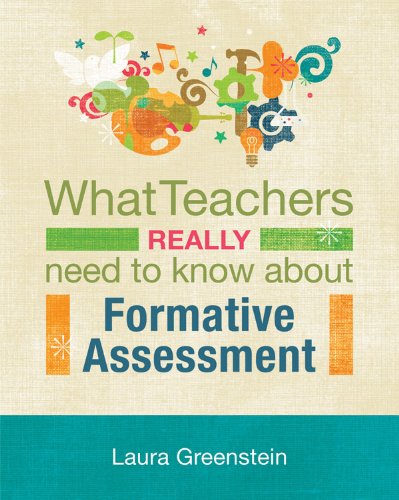What Teachers Really Need to Know About Formative Assessment Link to heading
Summary Link to heading
“What Teachers Really Need to Know About Formative Assessment” by Laura Greenstein is a comprehensive guide focused on the effective implementation of formative assessment in educational settings. The book provides educators with a clear understanding of formative assessment principles, emphasizing its role in improving student learning and instructional practices. It outlines various formative assessment techniques and strategies, detailing how they can be applied in classroom contexts to enhance feedback, student engagement, and teaching outcomes.
Review Link to heading
Laura Greenstein’s book is widely regarded for its practical, teacher-friendly approach to formative assessment. It offers a blend of theoretical insights and practical tools, making it accessible to both novice and experienced educators. The book’s strengths lie in its clear explanations, real-world examples, and actionable strategies. However, some readers may find the coverage of specific subjects or grade levels to be less detailed, as the book maintains a broad focus on the formative assessment process.
Key Takeaways Link to heading
- Understanding Formative Assessment: Emphasizes the importance of formative assessment as an ongoing process that informs teaching and supports learning progress.
- Strategies and Techniques: Provides diverse strategies such as feedback loops, peer and self-assessment, and data-driven instruction.
- Flexibility and Adaptation: Stresses the need for adapting formative assessment practices to fit various classroom contexts and student needs.
- Empowerment through Feedback: Highlights the significance of constructive feedback, encouraging a growth mindset and student accountability.
Recommendation Link to heading
This book is recommended for K-12 teachers, instructional coaches, and educational leaders looking to deepen their understanding of formative assessment. Its practical guidance and strategies can help educators enhance their assessment practices, improve student learning outcomes, and foster a more interactive and responsive classroom environment.
